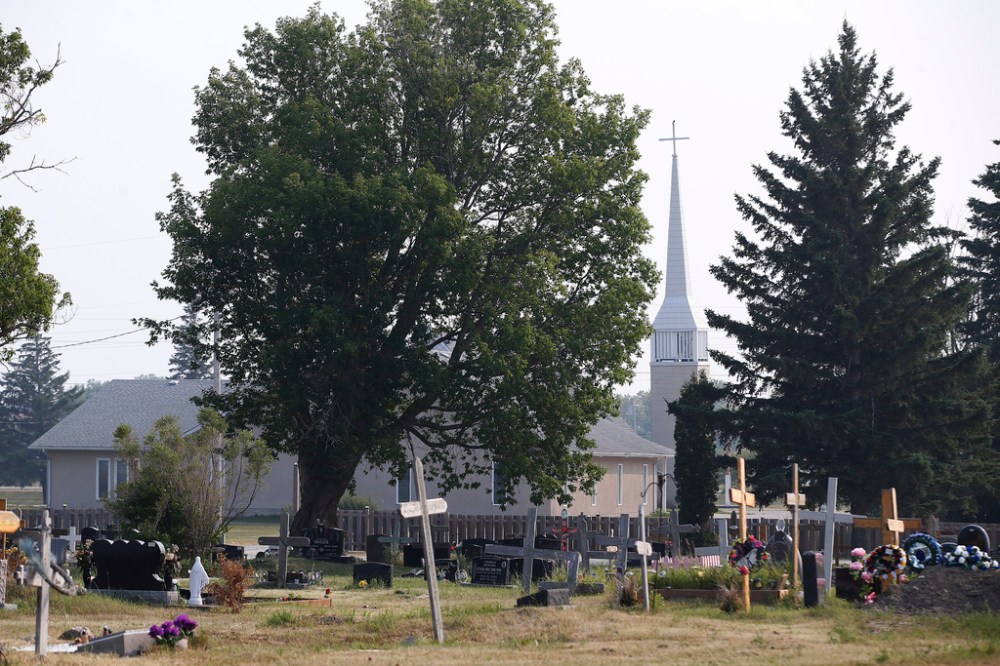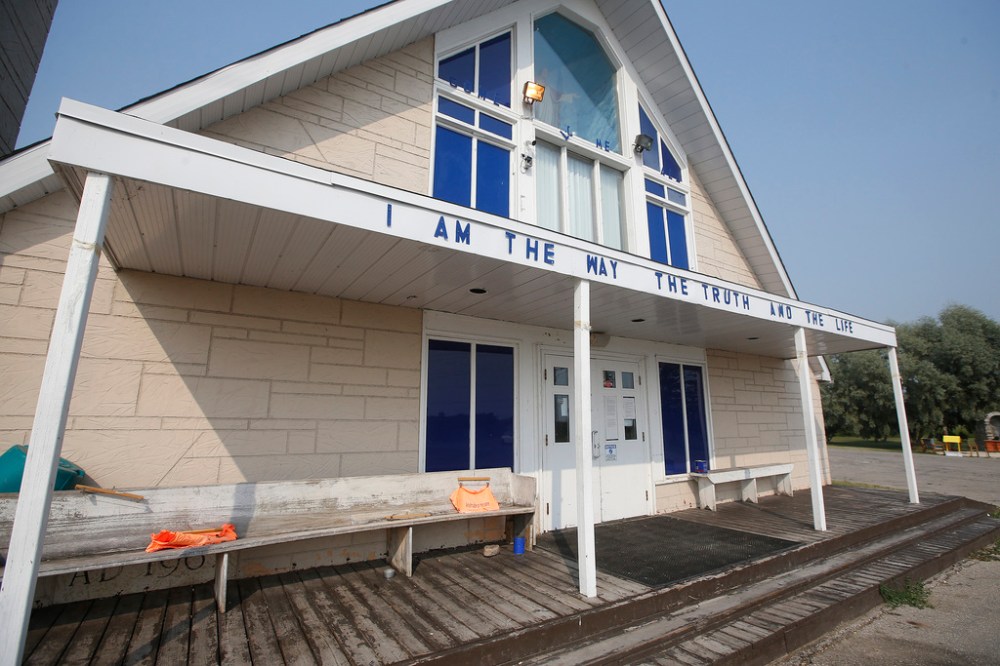Child sexual abuse investigation revealed
Read this article for free:
or
Already have an account? Log in here »
To continue reading, please subscribe:
Monthly Digital Subscription
$19 $0 for the first 4 weeks*
- Enjoy unlimited reading on winnipegfreepress.com
- Read the E-Edition, our digital replica newspaper
- Access News Break, our award-winning app
- Play interactive puzzles
*No charge for four weeks then billed as $19 plus GST every four weeks. Offer only available to new and qualified returning subscribers. Cancel any time.
Read unlimited articles for free today:
or
Already have an account? Log in here »
Hey there, time traveller!
This article was published 26/07/2021 (1247 days ago), so information in it may no longer be current.
Manitoba RCMP have been investigating child sexual abuse allegations at the former Fort Alexander Indian Residential School for more than a decade.
The results of the investigation — which has involved 80 officers speaking to more than 700 people across North America — are being reviewed by the Manitoba Crown attorneys office, which will advise police if criminal charges should be laid.
The existence of the probe came to light during a recent Free Press investigation into the legacy of Fort Alexander — one of 14 residential schools in Manitoba officially identified by the Truth and Reconciliation Commission of Canada.

The investigation is being made public for the first time, more than 11 years after the major crimes unit was sent to Sagkeeng First Nation in February 2010 to review historical records and canvas for potential victims and witnesses.
“The Manitoba RCMP recognizes the significant public interest this investigation will generate. However, it is imperative at this stage of the justice process that everyone recognizes that no charges have been laid,” the RCMP said in a written statement.
“This is the only investigation into residential schools underway by the Manitoba RCMP.”
Allegations of child sexual abuse at the school 120 kilometres northeast of Winnipeg — which was run by a Catholic order of nuns called the Missionary Oblates of Mary Immaculate — were made in public in 1990, by then-head of the Assembly of Manitoba Chiefs, Phil Fontaine.
Fontaine, a Fort Alexander survivor, revealed to the CBC during a television interview he was sexually abused by school staff. He said such abuse was rampant at the school and many of his classmates were also targeted.
The Free Press has interviewed two survivors of the school who said sexual abuse of children was an open secret.
The Missionary Oblates of Mary Immaculate ran more than 50 residential schools across Canada. There have been no criminal charges against any former staff at the Fort Alexander Indian Residential School, which operated at Sagkeeng from 1905 to 1970.
Despite the passing of 50-plus years, the fact RCMP sent their investigative file to Manitoba Prosecution Services for review would seem to indicate some former staff are still alive.
The RCMP began its work in 2010 with “probative investigations,” which is an early, information-gathering process aimed at determining the scope of potential abuse.
The investigators then travelled to Ottawa, where they compiled as much archival material as they could. Additional historic records were gathered at the Manitoba Archives.

The Mounties reviewed thousands of documents, “including student lists, employee lists, and quarterly returns.” Investigators interviewed people connected to the school and went door-to-door in Sagkeeng and the nearby community of Powerview-Pine Falls.
“Officers spoke to or interacted with more than 700 people across North America throughout this investigation in an effort to locate any possible victims or witnesses… a criminal investigation was launched in 2011,” the RCMP said.
“Seventy-five witness and victims’ statements were obtained by police.”
The Mounties have met with the Assembly of Manitoba Chiefs, the Southern Chiefs’ Organization, and chief and band council of Sagkeeng First Nation in recent days to update them on the investigation.
All told, children from 21 communities were sent to the Fort Alexander Indian Residential School when it was active.
Last week, Sagkeeng began ground-penetrating radar searches in the community, aimed at locating possible unmarked graves associated with the former school. Elders have long believed there could be such graves in the community.
Canada is currently in the grips of a national reckoning over its history of residential schools, following the discovery of more than 200 potential unmarked graves at the site of a former residential school in Kamloops, B.C., in late May.
Since then, discoveries of more potential gravesites linked to residential schools across the country have continued to pile up.
“The size and scope of this investigation has meant many years of investigative work… This very large and complex investigation resulted in the RCMP sending an investigative court package to prosecution services to review and provide advice regarding charges,” the RCMP said.
The Mounties added “victims, suspects, and witnesses have privacy rights,” and asked the public for patience so Crown attorneys have the “necessary time to fairly evaluate the evidence and provide advice.”
Sagkeeng Chief Derrick Henderson also requested privacy for his community, asking people not to retraumatize those affected by the investigation.
“Violation of the privacy rights of those involved in this investigation will not only cause further trauma to everyone involved, but also potentially compromise this highly sensitive investigation,” Henderson said.
“We ask that the trauma our community has experienced and continues to live every day is respected, and that those affected are afforded their privacy at this time.”
ryan.thorpe@freepress.mb.ca
Twitter: @rk_thorpe

Ryan Thorpe
Reporter
Ryan Thorpe likes the pace of daily news, the feeling of a broadsheet in his hands and the stress of never-ending deadlines hanging over his head.
Our newsroom depends on a growing audience of readers to power our journalism. If you are not a paid reader, please consider becoming a subscriber.
Our newsroom depends on its audience of readers to power our journalism. Thank you for your support.




